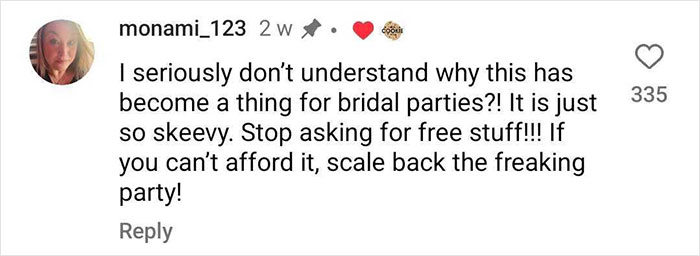A cookie company put a “beginner” influencer on blast last month after she attempted to get some freebies. The business’ brutal turndown left many divided, with some citing unnecessary rudeness, while others argued influencers have become “out of control.”
Taking to its Instagram page in a Reel on May 8, popular New York-based cookie brand Halfsies Cookie Company exposed Ana Montealegre, a recent college graduate who had emailed the brand to get some sweet treats for her bridal party boxes.
In the video, which amassed 1.2 million views, the business confirmed that it did indeed collaborate with influencers.
Nevertheless, upon seeing that Ana had less than 1,000 followers on her TikTok page and less than 2,000 followers on her Instagram account, Halfsies Cookie replied: “You’re not an influencer.”
New York-based cookie brand Halfsies Cookie Company put a “beginner” influencer, Ana Montealegre, on blast last month
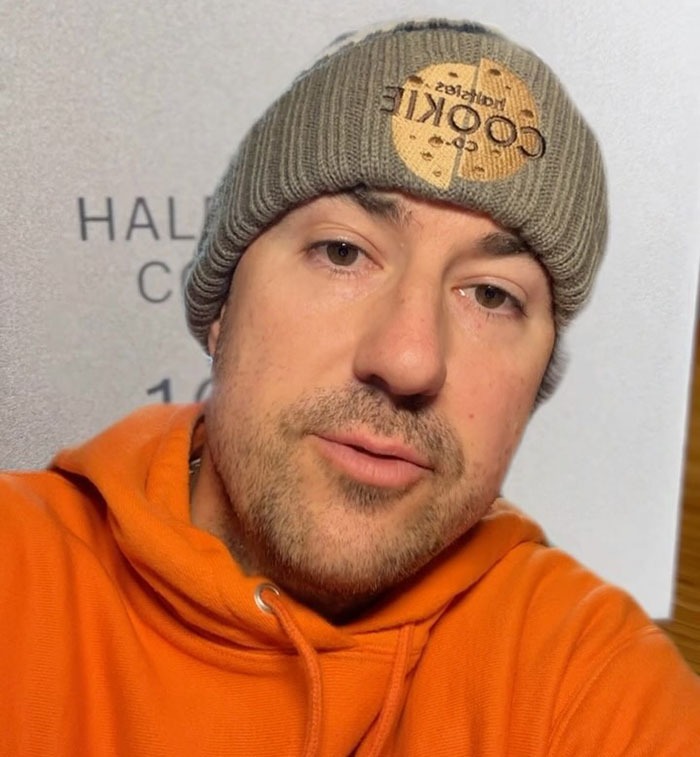
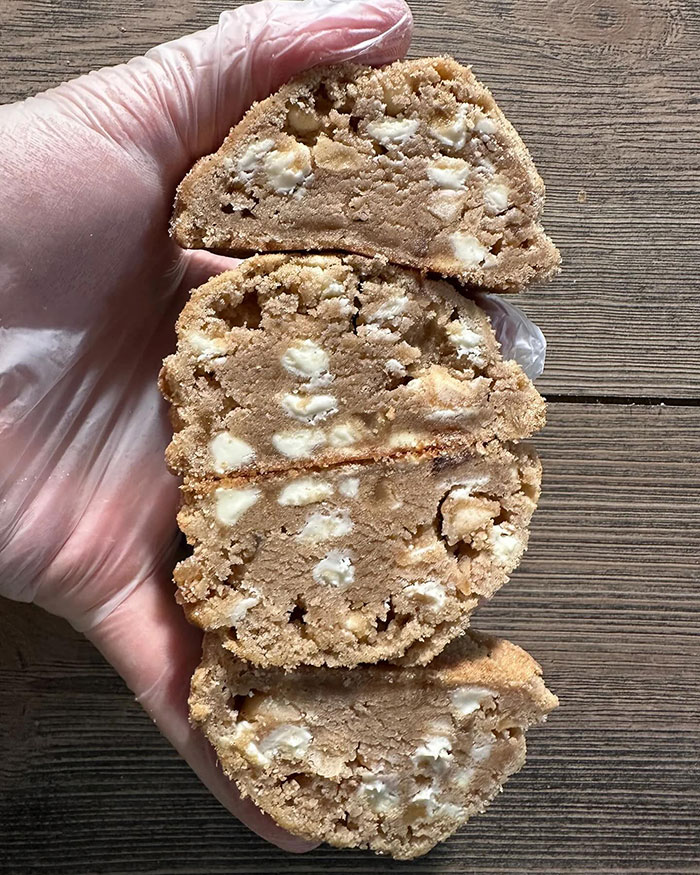
David Maffei, the business owner, directed Ana to the brand’s website, where she might place an order instead.
“I’m a beginner influencer,” Ana tried to persuade David, to which he replied: “And I’m a beginner astronaut.”
Mega influencers have more than 1 million followers, macro influencers have between 100,000 to 1 million followers, micro-influencers have between 10,000 to 100,000 followers, and nano influencers have between 1,000 to 10,000 followers, according to mobile marketing agency Moburst.
Ana, a recent college graduate, emailed the brand to get some sweet treats for her bridal party boxes
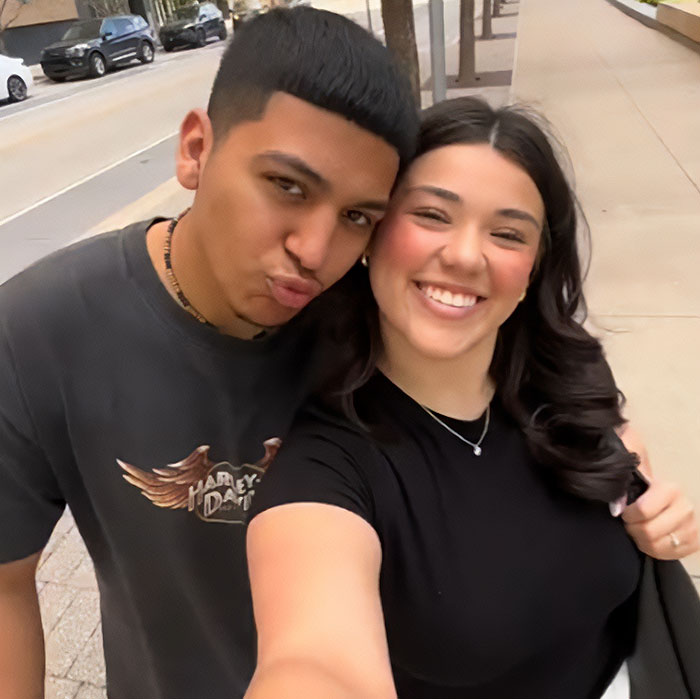
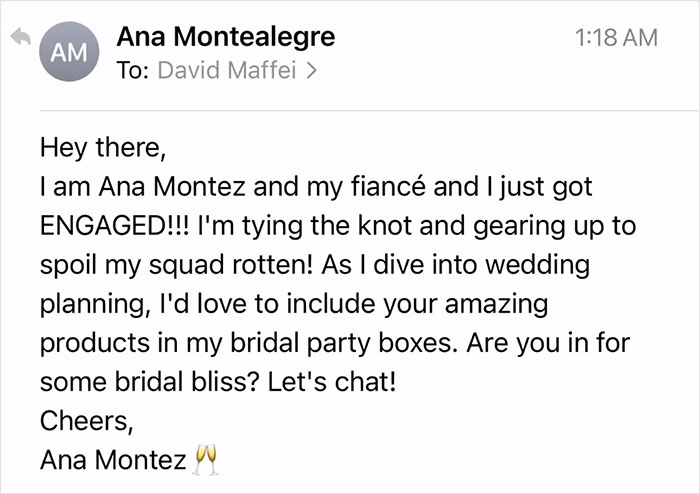
“Influencer” is a wild label, David declared in his post, before recommending aspiring influencers to buy products from brands and tagging them, adding that brands are likely to repost their content.
“You’ll pick up some followers and maybe other brands will see what you’re doing and you’ll eventually have an engaged following that’s interested in the products you receive but you just don’t ask in the beginning for free product,” he wrote.
The businessman continued: “When I tell you some of the biggest influencers on the Internet, purchased our cookies first and tagged us and that’s how we found out about them.”
David Maffei, the business owner, saw that Ana had less than 1,000 followers on her TikTok page
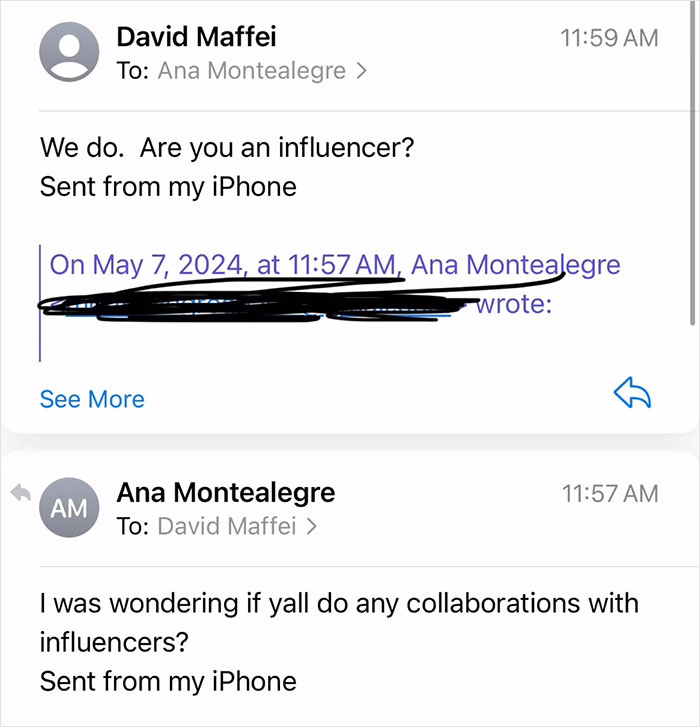

“When we realized who they were we added them to our mailing list.
“If you’re a terrific photographer you may be able to bypass this…”
David concluded by arguing that as a middle-aged man with a private social media account that has “more followers than her[s],” he would “never in a million years” think of himself as an influencer nor ask “for free stuff from a company [he doesn’t] follow.”
David also saw that Ana had less than 2,000 followers on her Instagram account
The harshly blunt post stunned some people, as a viewer commented: “This is rude. She is, in fact, a micro influencer.”
“Why did you post this just to embarrass her? As a brand account no less?” an Instagram user asked.
Someone else wrote: “Lmao what a way for a business to behave, it’s so easy to just say no.”
“I’m a beginner influencer,” Ana tried to persuade David, to which he replied: “And I’m a beginner astronaut”
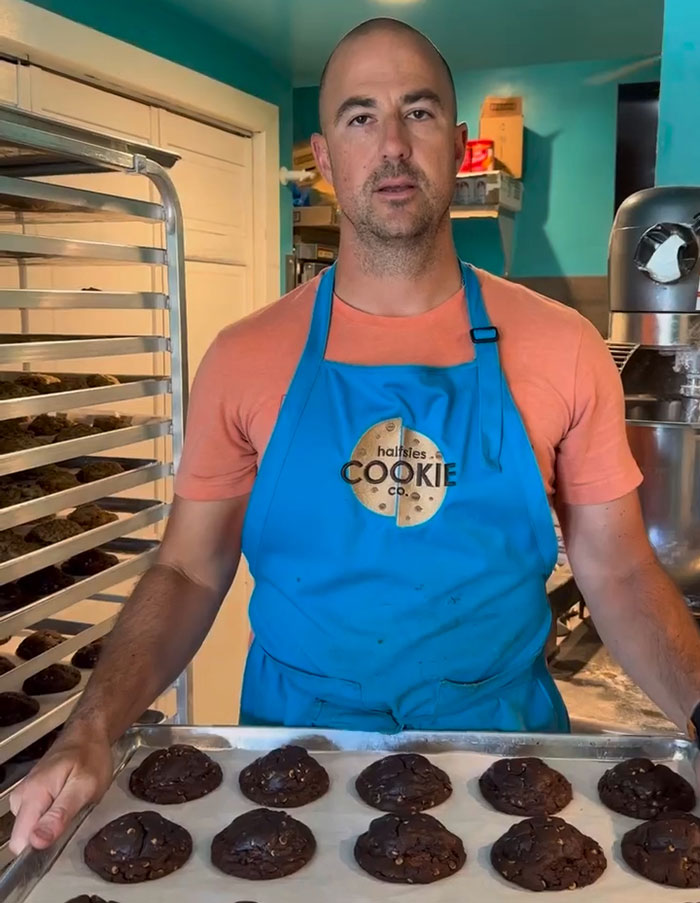
Image credits: halfsiescookieco
A person commented: “Ok, why put her on blast on social media?
“Is this company run by children? Rude and non-professional. Get a grip.”
A separate individual chimed in: “You can say no… she shot her shot.
“And I’m not gonna be mad at her for that.
“Nor should a business behave this unprofessionally. So disgusting.”
Reports show that micro-influencers have between 10,000 to 100,000 followers
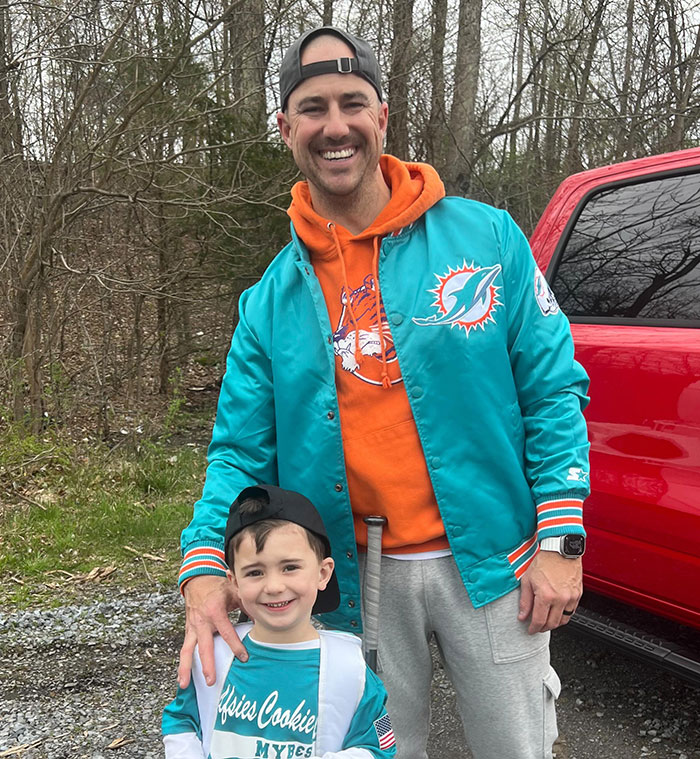
Nevertheless, others agreed, as a person penned: “Bahahah! Please normalize calling people out for this.
“Approaching small businesses for free stuff isn’t it.
“If you can’t afford to get married then adjust your expectations and budget, and don’t expect everyone else to go into debt for YOUR day.”
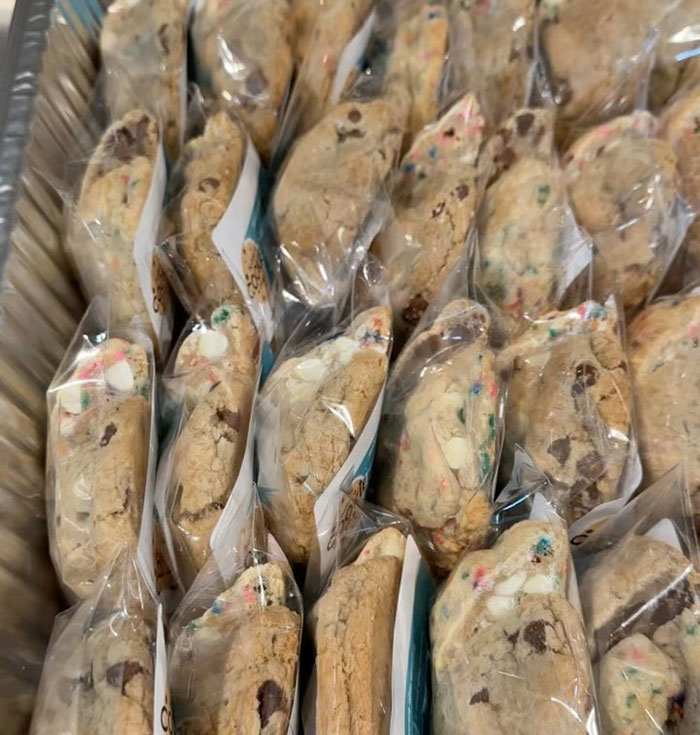
“The fact that people are defending this woman is mind-boggling to me,” an observer argued.
Someone added: “Influencing needs to come to a screeching halt.
“It is out of control. ‘Are you in for some bridal bliss?’ – No, not at all.
“The way these people feel so entitled to free shit is mind-boggling.”
“Influencer” is a wild label, David declared in his post
Those claiming to be social media influencers have become a regular issue for David, who has called out other individuals in the past.
In fact, one of his most recent heated exchanges with a person demanding cookies free of charge resulted in the entrepreneur being blocked.
On the flip side of his anti-influencer stance, David has also been handing out free products to people in need.
Last week, the cookie expert sent some of his delicious desserts to a seven-year-old girl needing a heart transplant.
Influencers attempting to collaborate with businesses and receiving special treatment is nothing new.
Just last month, Jamieson May, a newbie influencer from Melbourne, Australia, with less than 9,000 followers on TikTok at the time, saw her rant about “rude” responses from a restaurant she wanted to collaborate with dramatically backfire.
David’s post continued to ignite divided reactions










